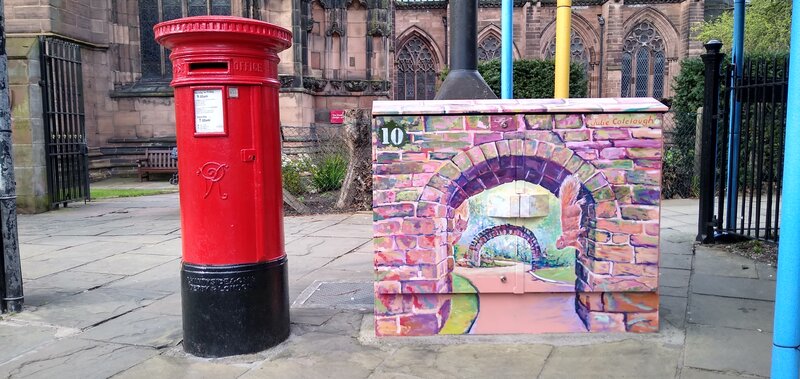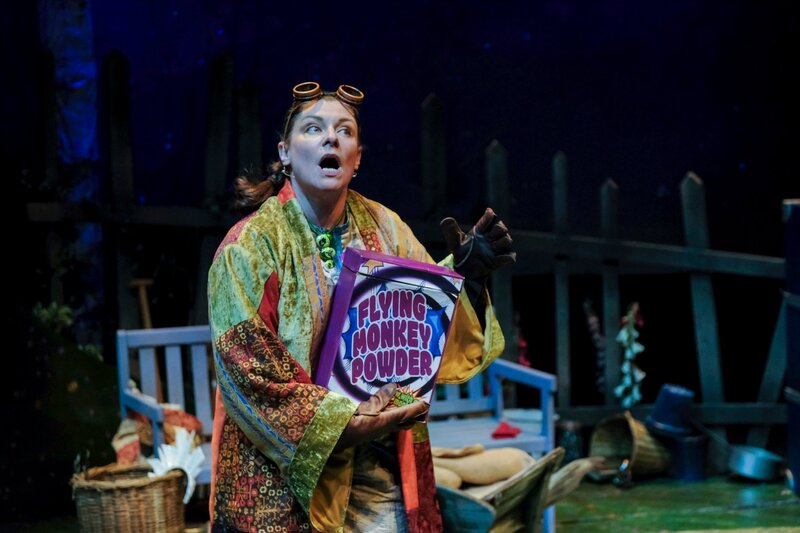Salford-born Ayub Khan Din’s semi-autobiographical comedy-drama East Is East has proved enormously popular since it was written and first performed in the mid-90s, not least on account of the Film Four hit, first released in 1999. In fact, it is often cited as one of the key works in helping to bring Asian culture to mainstream British audiences.
Back then there may have been nearly as much unthinking racism as in the Salford of the 70s it depicts. But this new production, starring Khan Din himself and Rawtenstall-born Jane Horrocks, arrives at Manchester Opera House in a rather different context to those days.
Unfortunately, Muslim families and especially young Muslim boys and men, are regarded with suspicion after 9/11 and 7/7, not to mention wall-to-wall news reporting of alleged Jihadist plots on every media imaginable. This is also a time when wars, whether declared or not, rage between East and West, or their surrogates not far from the Pakistan/India border, the area that so preoccupies Pakistani patriarch George Khan in the drama. Meanwhile, the question of Muslim parents not knowing, or being able to control, what their offspring do is rarely off the news agenda.
“I think the play has got more relevance today than when it was first written,” Horrocks told me recently. “The problem is that people still don’t understand Islam. And I think that is what drives the fear.
“From doing this play, and talking to Ayub, I learned a little more about Islam. I learned that Muslims in this country who are first generation find it very difficult to hold on to their traditions. They find it difficult to integrate. Ayub’s father felt so guilty about leaving his own culture in Pakistan that he couldn’t accept he was part of a new community in Salford. He couldn’t embrace it all and became this dreadful bully with his own children.”
Set in Salford in 1971, East Is East looks at a mixed-ethnicity British household headed by Pakistani-born father George ‘Genghis’ Khan and English mother, Ella, who run a fish and chip shop with the unwilling help of their half-dozen children. Horrocks plays Ella with a steely determination while Khan-Din is George, thus effectively playing his own father. That would be a strain in itself, you might well think, but George is something of a monster, raging at his family to follow Pakistani ways while they, having been born and grown up in Britain, increasingly see themselves as British and reject Pakistani customs of dress, food, religion, and living in general. You’d have to be pretty obtuse not to see that as a striking mirror image of contemporary Britain where we’re led to believe that radicalised Muslim youth are flocking overseas to fight for their Islamic brothers and despise nothing more than British society – unless it’s their Anglicised parents, of course.
Although George is a loud, menacing and unforgivably violent character, there’s also a degree of tragedy in him, found and subtly brought to life by Khan Din. He’s a man ultimately powerless to resist forces of change in his home life, or indeed his war-torn homeland. Yet he genuinely believes that what he’s doing is for the best and his tears as he estranges himself further and further from his British family are tears of frustration and even, in his own way, love.
Anyone who is only familiar with the broadly-comic film version will find this a much harder-edged proposition. A couple of moments are genuinely shocking, although there are even more that are laugh-out-loud funny. In fact, some of the younger cast members look and behave as if they’d be more comfortable in a musical version of the story but perhaps that’s just a problem with the sheer size of the Opera House, compelling them to mug or even shout. While ATG, who run both the Opera House and the Palace, are to be congratulated for their determination to bring drama as well as spectacle to their theatres, it’s not always that easily done, I’m afraid.
Nonetheless, the play itself stands as a landmark in Northern drama, addressing serious issues such as cultural identity, polygamy, arranged marriage and domestic abuse, while always remaining a comedy at heart.
What: East Is East
Where: Manchester Opera House
When: until January 31, 2015
More Info: http://www.atgtickets.com/shows/east-is-east/opera-house-manchester/













